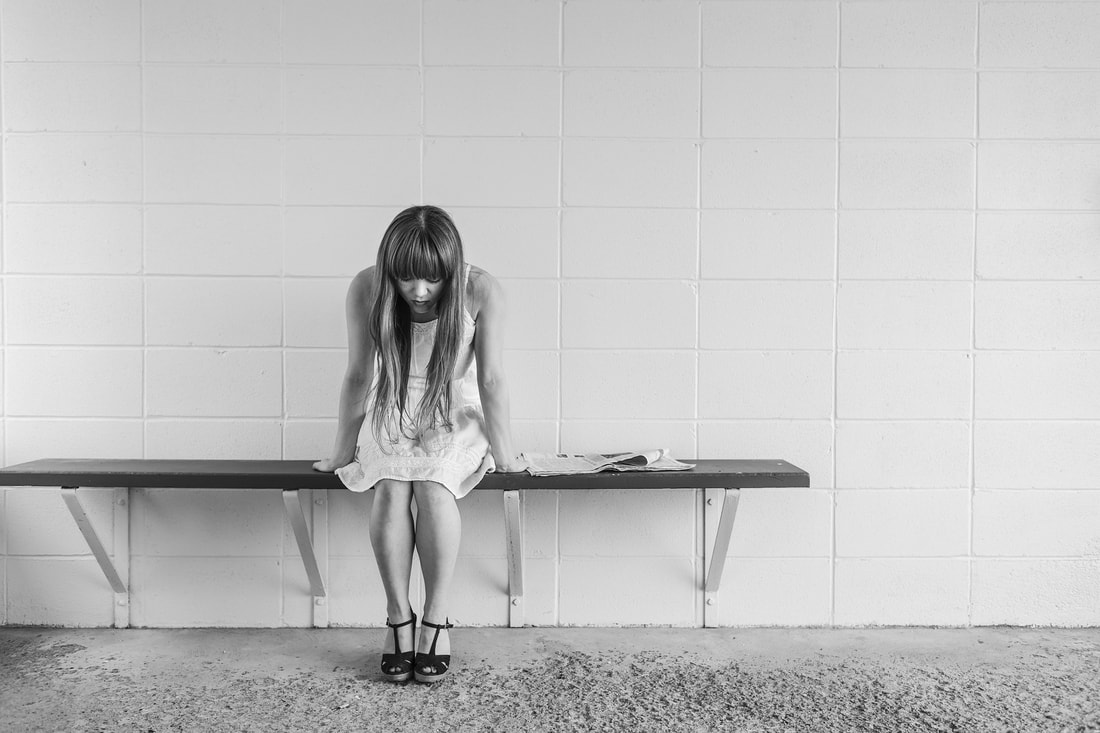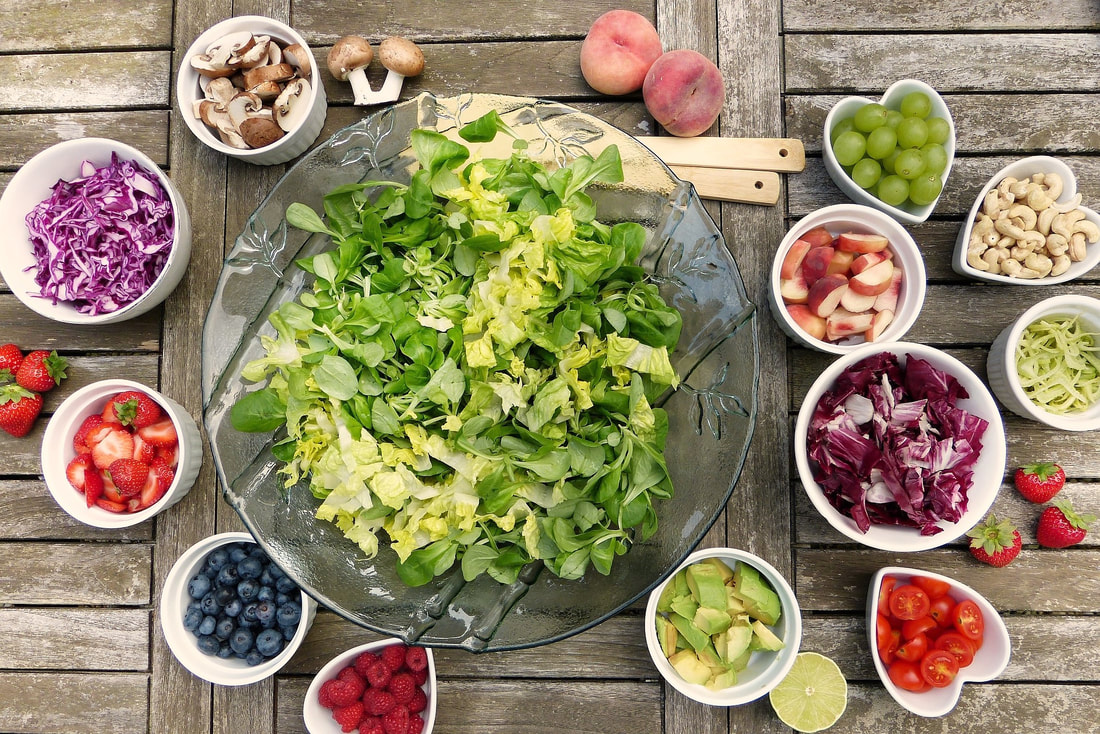
Image by Ryan McGuire from Pixabay
Depression affects people of all ages, from all walks of life. It causes mental anguish and impacts on people’s ability to carry out even the simplest tasks with sometimes devastating consequences for relationships with family and friends, and the ability to earn a living.
Yet, depression as any other chronic disease can be prevented.
What is depression?
Depression is an illness characterised by persistent sadness and a loss of interest in activities that you normally enjoy, accompanied by an inability to carry out daily activities. In addition, people with depression normally have several of the following symptoms:
- a loss of energy
- a change in appetite
- sleeping not enough or too much
- anxiety
- reduced concentration
- indecisiveness
- restlessness
- feelings of worthlessness
- guilt, or hopelessness
Depression is the result of a chemical imbalance in the brain, but that alone doesn’t capture how complex the disease is. Research suggests a faulty mood regulation by the brain, genetic vulnerability, a stressful lifestyle both emotionally and physically, medication use or underlying medical problems contribute to developing a chronic depression.
Yet, depression as any other chronic disease can be prevented.
What is depression?
Depression is an illness characterised by persistent sadness and a loss of interest in activities that you normally enjoy, accompanied by an inability to carry out daily activities. In addition, people with depression normally have several of the following symptoms:
- a loss of energy
- a change in appetite
- sleeping not enough or too much
- anxiety
- reduced concentration
- indecisiveness
- restlessness
- feelings of worthlessness
- guilt, or hopelessness
Depression is the result of a chemical imbalance in the brain, but that alone doesn’t capture how complex the disease is. Research suggests a faulty mood regulation by the brain, genetic vulnerability, a stressful lifestyle both emotionally and physically, medication use or underlying medical problems contribute to developing a chronic depression.
Here are some things you can do improve or prevent depression
Exercise and be physically active
Many studies have established that regular physical activity can help you feel better and prevent or recover from depression. The type of physical activity really doesn’t matter. Just choose something that you enjoy.
Start slowly but regularly for 30 min a day. Try exercising with a friend or relative, or sign up for a group class. Sharing the activity with someone may help you stick to a new activity.
Get some sunlight
You might fi nd that getting some sun can put you in a better mood. Some people have seasonal affective disorder (SAD), depression that typically recurs during the fall and winter when days are getting shorter.
In Thailand however, many people don’t get enough sunlight while avoiding the sun and the heat. Only 10 - 15min of outdoor activities or even just having a drink in the garden or on the balcony can make a difference.
Exercise and be physically active
Many studies have established that regular physical activity can help you feel better and prevent or recover from depression. The type of physical activity really doesn’t matter. Just choose something that you enjoy.
Start slowly but regularly for 30 min a day. Try exercising with a friend or relative, or sign up for a group class. Sharing the activity with someone may help you stick to a new activity.
Get some sunlight
You might fi nd that getting some sun can put you in a better mood. Some people have seasonal affective disorder (SAD), depression that typically recurs during the fall and winter when days are getting shorter.
In Thailand however, many people don’t get enough sunlight while avoiding the sun and the heat. Only 10 - 15min of outdoor activities or even just having a drink in the garden or on the balcony can make a difference.

Image by silviarita from Pixabay
Get enough sleep, but not too much
Depression, and sometimes the treatment for it, can interfere with your sleep. Some people with depression sleep too much. Not getting enough sleep can have a huge impact on your mood. Stay on a regular schedule. Don’t nap. Physical activity during the day may help you sleep, but don’t exercise 2-3 hours before bedtime. Before getting into bed, unwind with a good book or soothing music. Avoid watching TV or staring at a bright computer or mobile phone screen in bed, as the blue LED light can trick your circadian rhythm.
Eat a healthy diet
Next to physical activity and a sensible sleeping pattern, food is the most important item on a prevention and recovery plan. A balanced diet including mostly plantbased, unprocessed whole foods and natural fat sources is the basis for every disease prevention and health promotion effort. Talk to a nutritionist for advice.
Depression, and sometimes the treatment for it, can interfere with your sleep. Some people with depression sleep too much. Not getting enough sleep can have a huge impact on your mood. Stay on a regular schedule. Don’t nap. Physical activity during the day may help you sleep, but don’t exercise 2-3 hours before bedtime. Before getting into bed, unwind with a good book or soothing music. Avoid watching TV or staring at a bright computer or mobile phone screen in bed, as the blue LED light can trick your circadian rhythm.
Eat a healthy diet
Next to physical activity and a sensible sleeping pattern, food is the most important item on a prevention and recovery plan. A balanced diet including mostly plantbased, unprocessed whole foods and natural fat sources is the basis for every disease prevention and health promotion effort. Talk to a nutritionist for advice.

Image by Free-Photos from Pixabay
Try expressing yourself creatively
Creativity can have many different forms and you don’t need to be especially good at it. Writing a journal or short stories, painting, music or crafting are great ways to express yourself other than with the spoken word.
Avoid alcohol and drugs
Alcohol and many illicit drugs can contribute to depression and make it worse. In fact, substance abuse often goes hand in hand with depression. If you think you have a substance abuse problem, you need to get help. Addiction or abuse can prevent you from fully recovering from a depression.
Alternative therapies
Learning and practising cognitive therapy techniques, one properly, may work as well as antidepressant medicines for depression and prevent recurrences.
You might also try relaxation techniques, meditation, hypnosis, massage, or acupuncture.
Creativity can have many different forms and you don’t need to be especially good at it. Writing a journal or short stories, painting, music or crafting are great ways to express yourself other than with the spoken word.
Avoid alcohol and drugs
Alcohol and many illicit drugs can contribute to depression and make it worse. In fact, substance abuse often goes hand in hand with depression. If you think you have a substance abuse problem, you need to get help. Addiction or abuse can prevent you from fully recovering from a depression.
Alternative therapies
Learning and practising cognitive therapy techniques, one properly, may work as well as antidepressant medicines for depression and prevent recurrences.
You might also try relaxation techniques, meditation, hypnosis, massage, or acupuncture.
Judith Coulson is a Certifi ed Corporate Wellness Specialist, Medical Nutritionist and Lifestyle Coach working with individuals, executive teams, schools and companies based in Thailand and Hong Kong. lifestylefoodclinic.com, corporate-wellness.asia


 RSS Feed
RSS Feed
















